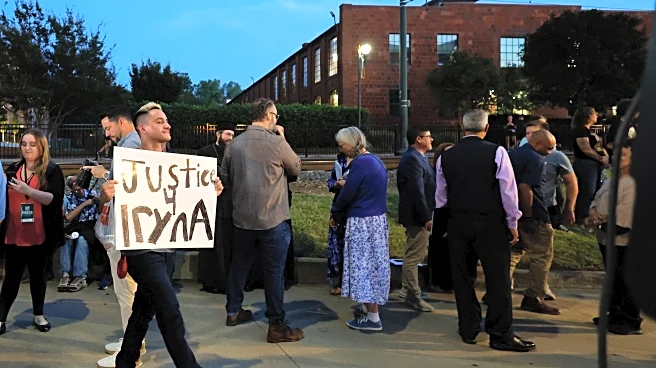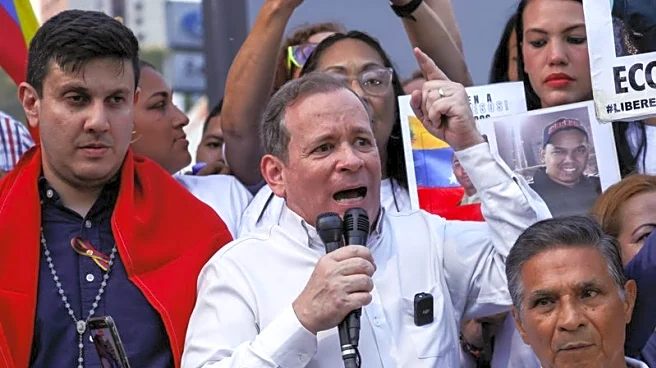What's Happening?
PBS is set to premiere Ken Burns' new documentary series 'The American Revolution,' despite recent federal funding cuts initiated by President Trump. The series, airing over six nights, marks a significant
moment for PBS as it navigates the challenges posed by the defunding of the Corporation for Public Broadcasting (CPB). Paula Kerger, CEO of PBS, emphasized the importance of the documentary in demonstrating the resilience of public broadcasting. The funding cuts have led to layoffs and cost-cutting measures, but PBS remains committed to delivering high-quality content. The documentary coincides with America's 250th anniversary celebration in 2026 and has been in development since 2015.
Why It's Important?
The defunding of CPB by President Trump has significant implications for public broadcasting in the U.S., particularly affecting local stations in rural areas with limited resources. The premiere of 'The American Revolution' serves as a testament to PBS's ability to continue producing impactful content despite financial challenges. The documentary's release highlights the ongoing debate over federal support for public media and its role in preserving cultural and historical narratives. The situation underscores the need for alternative funding sources and the potential impact on communities that rely on public broadcasting for educational and cultural programming.
What's Next?
PBS is actively seeking to restore federal funding through congressional support, with Kerger expressing optimism about reclaiming some of the lost funds. The organization is also relying on emergency grants and loans from philanthropic entities to sustain operations. The success of 'The American Revolution' could bolster PBS's efforts to secure future funding and reinforce its position as a vital cultural institution. As the documentary tour continues, PBS aims to engage audiences nationwide and demonstrate the value of public media in fostering a shared understanding of American history.
Beyond the Headlines
The funding cuts raise broader questions about the role of public media in a polarized political environment. The documentary's focus on America's origins may serve as a unifying narrative, encouraging reflection on national identity and values. The situation also highlights the ethical considerations of media funding and the potential influence of political agendas on public broadcasting. As PBS navigates these challenges, the documentary's reception could influence future discussions on media funding and the preservation of cultural heritage.










